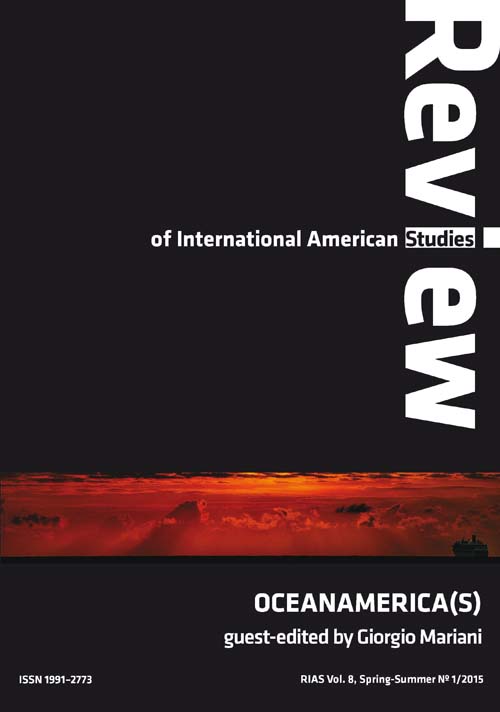‘THE WORLD OF MADE IS NOT THE WORLD OF BORN’: America and the Edge of the Continent
‘THE WORLD OF MADE IS NOT THE WORLD OF BORN’: America and the Edge of the Continent
Author(s): Tadeusz SławekSubject(s): Language and Literature Studies, Studies of Literature, Other Language Literature, Cultural Anthropology / Ethnology
Published by: Wydawnictwo Uniwersytetu Śląskiego
Summary/Abstract: At the beginning of his great 1927 poem "Women at Point Sur", Robinson Jeffers offers a harsh judgment of the American mind as a producer of a culture of avoidance or evasion. In Jeffers’ words, ‘You chose to ignore consciousness, incredible how quickly / The American mind short-circuits by ignoring its object. / Something in the gelded air of the country’ (Jeffers, 1927: 26). It is a commentary on the conversation that Reverend Barclay has just had with a boy working at a hotel, and whose opinion as to a possible existence of God he is asking. Since there comes no answer to the interrogation, ‘Do you think there’s a God?’, and the young man does not seem to have an opinion at all, these circumstances occasion Reverend Barclay’s angry dismissal of America not as incidentally empty of interest in the transcendental but as purposefully choosing such ignorance. America bespeaks double ignorance: 1) it ignores consciousness (which, for Jeffers, stands for the ability to live and investigate life in a most serious manner), and 2) this ignorance leads to the second type of evasion—America, in avoiding all the seriousness of life and developing new strategies of disarming life’s seriousness, avoids itself, voids itself, ignores its own object. What is seriousin life, what makes life serious, why life IS serious, has been eliminated from the American life, which therefore presents itself as ‘gelded’, i.e., deprived of what is essential for life to happen.Life in what Jeffers refers to as ‘America’ develops in the aura of a certain vital lack that makes this life almost a parody of existence. Life conceived under the auspices of ‘something gelded’ is monstrous or phantasmatic, and this spectrality can be documented upon the level of the self (‘consciousness’), the state (‘America’), and God. Each of these phantasms turns its own existence into a peculiar kind of imprisonment in which what Jeffers repeatedly names ‘inexhaustible life, incomparable power, inhuman knowledge’ changes into no more than a ‘blind adventure’ (Jeffers, 1927: 90, 21). In consequence, the solidity of the structure called ‘America’, its ‘wall-ed’ streets, and mansions that advertise the present and future prosperity are now revealed to be constructions of spectral urbanity and phantomatic architecture. As Reverend Barclay contends, ‘Sticks plastered, cloth, books, what they call a home; / Framed to wall out the wild face of eternity’ (Jeffers, 1927: 23). Jeffers avows then that ‘America’ is a project, the heart of which was the ambition to conquer wilderness (hence the mythology of the frontier and pioneer). The project backfired, or short-circuited, because, while successfully eliminating the natural wild, it has forsaken the existential wild, which must always be kept and preserved as a condition of existence. ‘America’ grows as the Enlightenment project of the civilizing illumination which compromises itself by ‘enlightening’ the world to such a degree that it has neglected...
Journal: Review of International American Studies
- Issue Year: 8/2015
- Issue No: 1
- Page Range: 67-99
- Page Count: 33
- Language: English

